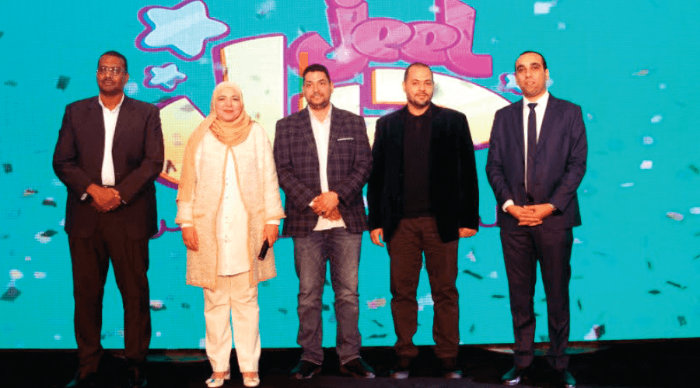CAIRO: From educational technology to digital content and cryptocurrency, the startup ecosystem is buzzing with activity as significant venture investments and strategic acquisitions take place across various sectors.
Saudi-based Jeel, an edtech startup for children, adolescents, parents, and educators, has secured a seven-figure funding from RZM Investment and a group of prominent angel investors.
Jeel plans to strengthen its presence in the business-to-business and business-to-government sectors by offering its services to institutions and governments.
“Our goal is to broaden our scope and impact in digital content by partnering with institutions and governments, thereby driving growth in the sector,” said a Jeel spokesperson.
The funding will also be used to add new languages to the Jeel app, aiming to attract more users from various Arab countries and expand into new markets within the region.
“We are committed to providing a superior user experience by integrating new features and continually improving our app,” the spokesperson added.
Additionally, the company will launch a comprehensive online store to facilitate the purchase of Jeel app-related products and services, providing users with a seamless experience and contributing to the company’s revenue growth.
“With this investment, Jeel reaffirms its commitment to providing innovative and purposeful digital content for children, adolescents, parents, and educators, with a focus on enhancing and enriching the Arabic language,” the spokesperson added.
This strategic investment will enable Jeel to further its mission of delivering high-quality educational and entertaining digital content, positioning itself as a leader in the industry, the release stated.
CoinDCX acquires BitOasis to strengthen MENA presence
CoinDCX, India’s largest crypto exchange, has announced the acquisition of BitOasis, a UAE-based virtual assets trading platform.
This strategic move follows CoinDCX’s investment in BitOasis in August 2023 as the company aims to strengthen its presence in the Middle East and North Africa.
The acquisition will empower BitOasis to expand its presence across the MENA region, leveraging its newly acquired license in Bahrain and its platform reopening in Dubai.
Established in 2018, CoinDCX claims it boasts a robust user base of over 15 million and facilitates average quarterly trading volumes exceeding $840 million in spot in 2024.
“Building on six years of success, CoinDCX aims to become the go-to trading platform for crypto worldwide,” said Sumit Gupta, co-founder of the firm.

Jeel plans to strengthen its presence in the business-to-business and business-to-government sectors by offering its services to institutions and governments. (Supplied)
“For us, investor protection has been paramount, and we have distinguished ourselves in India with unwavering compliance,” he added.
BitOasis, founded in 2016 by Ola Doudin, Tarek Kaylani, and Daniel Robenek, is the first and largest crypto asset exchange in the MENA region. It is available in 15 countries across the region, allowing its users to buy, hold and sell over 60 cryptocurrencies.
The company claims to have processed over $6 billion in trading volume and secured more than $40 million in funding from leading regional and global investors.
“CoinDCX’s acquisition marks an exciting new chapter for BitOasis, one that propels us forward on much stronger ground,” said Doudin, CEO of BitOasis.
“Trust and regulatory compliance have been key pillars in our mission to drive crypto adoption across MENA,” she added.
The acquisition will enable BitOasis to offer a broader product portfolio, enhanced crypto services, increased liquidity, and improved trading options.
“Users can expect an overall enhanced experience with access to a wider range of tokens and better trading options,” Doudin added.
Sumit Gupta emphasized that BitOasis’ brand and leadership team will remain unchanged following the acquisition, fostering seamless synergy and collaboration between both organizations.
“Joining forces with BitOasis aligns perfectly with our vision of establishing a formidable foothold across the MENA region, catering to a diverse range of retail and institutional clients,” Gupta said.
EdVentures invests $400k in Egyptian online education platform El Kheta
Egyptian EdVentures, the investment arm of Nahdet Misr Group specializing in educational technology, has announced a $400,000 investment in El Kheta, an online platform for Egyptian students.
El Kheta offers reinforcement lessons, exams, and interactive videos from the new Egyptian curriculum, providing students with a customized and flexible educational experience.
“We firmly believe in the potential of the El Kheta platform to revolutionize the online education sector in Egypt,” said Dalia Ibrahim, founder and chairwoman of Nahdet Misr for Entrepreneurship EdVentures.
“We are committed to supporting talented entrepreneurs in the educational technology sector and helping them achieve their vision of creating a better and easier educational experience for everyone,” she added.
The El Kheta platform offers students the ability to choose their preferred curricula and create study plans that suit their needs.
Services include reinforcement lessons, interactive educational videos, homework assignments, and direct communication with teachers.
This personalized approach aims to improve students’ academic performance and overall success. “Our goal is to empower youth and expand the scope of online education opportunities for school students in Egypt,” Ibrahim said.
Germany’s Mitgo Group launches $20m fintech Capy
Germany-based holding company Mitgo Group has launched a $20 million fintech startup called Capy, targeting the MENA market.
This investment package will be distributed over the next three years. The initial tranche will be allocated towards developing the platform’s first version, with a particular focus on early and accelerated payment solutions.
In the first quarter of 2024, Mitgo Group announced the introduction of fintech services for publishers in the affiliate market, including cashback services, media buying, loyalty programs, and buy-now-pay-later services.
This new direction is being launched on the foundation of the recently acquired UAE-based embedded finance platform, Embedded.
Since the acquisition, Embedded has received additional funding and comprehensive support, and it has been relaunched as Capy within Mitgo’s global holding company.





























